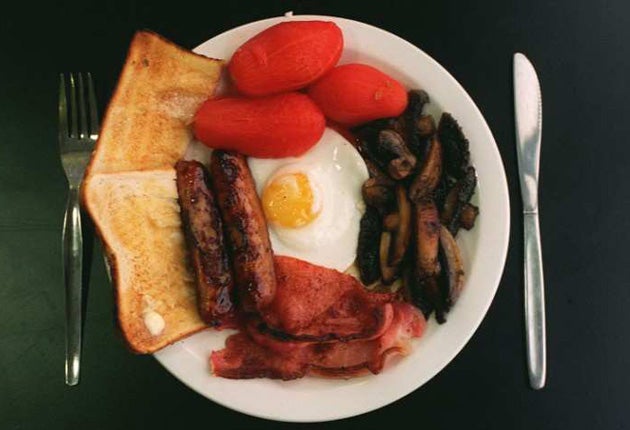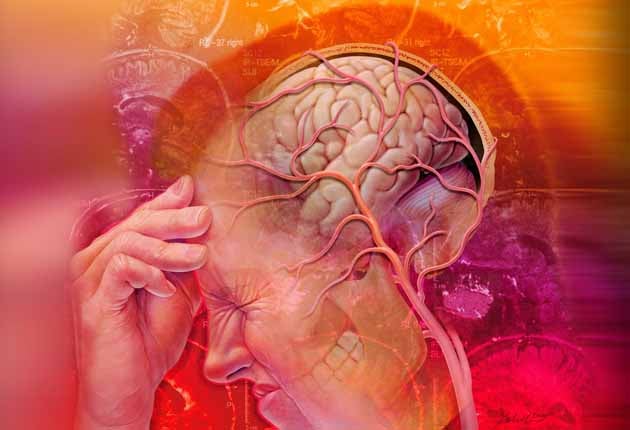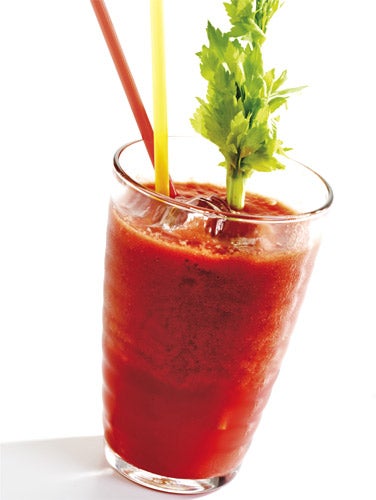Headaches, fry ups, and hair of the dog - why do we get hangovers, and is there such thing as a 'cure'?
With recent news that the average Briton spends over a year of their life nursing a hangover, Dr Nick Knight explains the short term effects of drinking too much alcohol

You know the scene – waking up to inflatable animals floating in champagne-contaminated hot-tubs, discovering that missing lateral incisor tooth, and of course, the obligatory tiger in the bathroom. The Hangover movie captured, albeit in exaggerated context, the most salient features of a hangover in pure Hollywood style.
While we may not be waking up in Vegas (though this has happened to me once), we are waking up with the same collection of hangover symptoms that exist on a spectrum from mild irritation to knocking on the door of death. This is a big issue, with half a million of us hungover in the workplace each day, according to a DrinkAware Study, and news this week that Brits spend a whole year of their life being hungover. So it begs the question, what exactly is a hangover and why does it make us feel so bad?
Now you may define a hangover as that sensation of some rare marsupial crawling in and designating your mouth as its final resting place. Perhaps a more digestible definition would be the collection of unpleasant physical and mental symptoms you experience that follow the consumption and subsequent elimination of alcohol from your body - that is, when your blood alcohol concentration returns to zero. Those physical symptoms of a dry mouth, headache, nausea and lethargy miserably twinned with the mental symptoms of irritability, anxiety and drowsiness.
The science behind the hangover is fairly complex and somewhat unresolved. It is however, most definitely multi-factorial and while the alcohol that you chose to drink the night before is the trigger, there are many aspects of your body that give you those feelings like Doug and the Vegas gang went through. So let us take an ‘after the night before’ fragile, not too ‘shouty’, look at what has given you your current set of symptoms.

So let’s set the scene, you wake up, it’s dark and your own sensation is the anguish as you begin to tune in your body and mind, with the words “To a night we’ll never forget”, being the last ones you remember. The first symptom you’ll notice is that your mouth feels sandpaper. Alcohol (or specifically ethanol) switches off a hormone called anti-diuretic hormone (ADH) which is normally produced in your brain’s hypothalamus. As a result, you experience a profound diuresis i.e. you urinate a lot more and become more dehydrated, lose electrolytes (e.g. sodium) and wake up with a mouth like the Serengeti. At the same time, your pain pathway catches up with your mouth, and you realise that you have a splitting headache. This is a result of the vasodilatory effects of alcohol on your brain’s blood vessels, twinned with your dehydration for mass headache effect.
So you manage to get out of bed and struggle, hunched over, like a stand in double for Sméagol of Lord of The Rings, but why are you so exhausted? Two reasons; firstly you are most likely to be more hypoglycaemic (you have a low blood sugar) owing to the negative effects that alcohol consumption has on your carbohydrate metabolism, and secondly because of the poor quality sleep that you would have experienced as a result of alcohol ingestion.
As your mind wanders to a nice, hearty fry up, your gag-reflex may well kick in as a new wave of nausea engulfs you. This is down to the thin lining of your stomach being irritated by the alcohol from the night before and the excess production of gastric acid juices (normally used to help digest your foods). Interestingly, the latest evidence suggests that we should be pointing the figure of blame for your nausea, headache and fatigue firmly at your immune system. An unlikely candidate you may think, but it appears that abnormal metabolism and subsequent elevated levels of cytokines (a type of protein used in your cell to cell communication) are increased after alcohol consumption, and may be mediating your symptoms.
Of course one of the main proposed reasons that you feel so rough after excess alcohol consumption is the breakdown products of alcohol itself. We have discussed before in my previous article about the effects of alcohol. Alcohol is converted to acetaldehyde by the enzyme alcohol dehydrogenase. When overwhelmed by excess alcohol consumption, there are metabolic systems, in particular the NAD/NADH redox system (we won’t dwell on all this biochemistry, especially if you are hungover right now) that stop working efficiently. The result is the body functions less effectively and may contribute to all the symptoms we have described beforehand.

Now perhaps you are nodding, just as you are about to take that first terrifying, fragile sip of water on the long road to recovery, and your friend you were out with bounces by, fresh as an English-field daisy. You may have noticed that some people seem to escape the hangover better than others. I know, at 31, that it takes me longer than my former spotty, scrawny 18 year old self. Science suggests that as we age we have declining levels of that enzyme, alcohol dehydrogenase. Furthermore, evidence suggests that women are more prone to a hangover than men, if matched by alcohol consumption, owing to differences in the pharmacokinetics (how a drug moves through the body) of alcohol between genders. Genetics has a part to play as well. For example, people of an Asian descent have a genetic predisposition to less alcohol dehydrogenase and so have reduced alcohol tolerance.
If you are successfully onto your second sip of water, you are probably thinking (and praying) that there must be a better way to cure a hangover? I hate to break the news but even the British Medical Journal concluded that there is no evidence to suggest that any hangover intervention is effective at preventing or treating a hangover. I know, the news is right up there with discovering Santa Claus isn’t real. Though I still dispute this. Of course the truest management method is not to have a drink in the first instance but if you do then to drink within your limits and health guidelines.
If you do drink excessively, however, then rehydrate with water, aspirin for the headache, maybe an Alka-Seltzer for the gastric acid excess, and then let time be thy healer. Oh yes, and for those of you looking for that excuse to have a fry up, a recent paper from the Alcohol Hangover Research Group (yes, I know, there is such a group), now advocate this as a cure for the hangover. The science behind this being that there are (amongst the, ahem, artery-clogging fats) plenty of carbohydrates to replace your low blood sugar and combat your fatigue.

Of course there are then, those alternative remedies. Perhaps, you might feel impassioned to try the raw owl’s eggs favoured by the Romans, tomato juice and beer favoured by Ernest Hemingway, or Black Velvet, a drink consisting of equal parts champagne (got your attention now…)…and stout (lost your attention now..). These are all untested and of course not recommended.
Before I finish and leave you to your third sip of water or to complete your next hangover, let’s talk about the notion of the hair of the dog. The theory behind this is that further consumption of alcohol, for example, via a Bloody Mary, will relieve your symptoms by satiating the body’s need for alcohol. In short, no, don’t.
The hangover goes hand-in-hand with the excess consumption of alcohol. Now although much of this article is said with a light-hearted tone, let us be very serious for a minute. Alcohol can have devastating consequences for you – physically, mentally and socially. The hangover and work absence also has a huge negative socio-economic impact, with lost productivity labelled at a cost of £7.3 billion per year in a recent House of Commons report. Many people suffer from crippling alcohol dependence and addiction, and for them a hangover can be the trigger for the next drink. I said it in my last article on alcohol, and I’ll repeat it here, they need support and help, not judgement.
“We found Doug!” the words that marked the end of The Hangover movie. Perhaps though, your hangover journey is only just kicking in. That set of physical and mental symptoms you feel as your body comes to terms with being deplete of alcohol will not last forever. While today they may serve as a joke with friends or a long and painful day in the office, remember to please drink responsibly and within your limits. As always, if you have any concerns related to alcohol then please do visit your GP. Now go on, you rest and have some water, I’ll take care of the tiger in the bathroom…
Dr Nick Knight is a junior doctor based in London with a PhD background in human performance. His blog on life as a doctor can be read at: https://drnickknight.wordpress.com/
Or follow him via Twitter: @Dr_NickKnight
Join our commenting forum
Join thought-provoking conversations, follow other Independent readers and see their replies
Comments